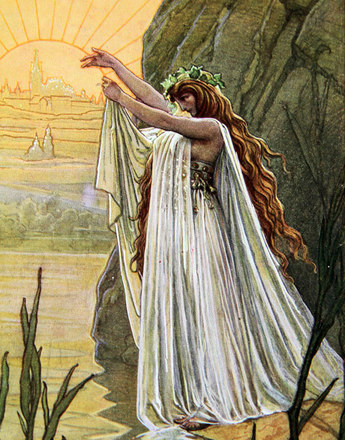The 1848 Revolution gripped the whole of Central Europe. The events of that time signified a change of course not only in German national awareness, but 1848 was also a historic milestone for the young Czech national movement in articulating national demands.
When the German National Assembly in Frankfurt am Main also invited representatives from Bohemia, which had after all been part of the Holy Roman Empire since the Middle Ages, the leader of the Czech National Movement, František Palacký (1798–1876), rejected this offer in the name of the Czech nation in his famous letter and announced the “Secession of the Bohemian (= Czech) Nation out of German history”.
The letter contains the following, oft quoted, lines: “In truth! If the Austrian Empire did not exist, it would have to be invented in the interest of Europe, in the interest of humanity itself.” It was a profession of faith in the multi-ethnic, Slav-dominated Habsburg Monarchy and the birth of political Austro-Slavism. It expressed the recognition that the smaller ethnic groups of Central Europe would find protection against a Pan-Germanic or Pan-Slavic-Russian absorption only within the Habsburg Empire.
Further demands of the Czechs formulated by Palacký consisted in Bohemia’s secession from the German Federation and also administrative autonomy and national equality of the Czech linguistic group in all spheres of public life within Bohemia.
On the other hand, the representatives of the German-Bohemian side demanded the dissolution of historical borders and the separation of the German-speaking areas of Bohemia with the intention of annexation to German territories.
The two ethnic groups were now at the crossroads: German Bohemia sent their members to Frankfurt and professed their allegiance to the unity of Austria and Germany. Moreover, the German representatives withdrew from the Prague National Committee [Národní výbor], which mean that it was now a purely Czech representation of the people.
The Czechs answered with an emphatically Slavic counter-programme. Prague became the arena of the Slav Congress, to which emissaries from all Slav peoples of Europe were invited. This assembly was dissolved later in the course of the suppression of the 1848 Whit Uprising.
The result of the revolutionary events of 1848 was not exactly conducive to the future coexistence of the two linguistic groups in the Bohemian lands – because now the conflict over dominance had erupted. The separation based on linguistic criteria was fostered on all levels of public life, which led to the formation of two separate national societies in the Bohemian lands.
Translation: Abigail Prohaska
Hoensch, Jörg K.: Geschichte Böhmens. Von der slavischen Landnahme bis ins 20. Jahrhundert, München 1987
Kořalka, Jiří: Tschechen im Habsburgerreich und in Europa 1815 bis 1914. Sozialgeschichtliche Zusammenhänge der neuzeitlichen Nationsbildung und der Nationalitätenfrage in den böhmischen Ländern (Schriftenreihe des Österreichischen Ost- und Südosteuropa-Instituts 18), Wien 1991
Křen, Jan: Dvě století střední Evropy [Zwei Jahrhunderte Mitteleuropas], Praha 2005
Rumpler, Helmut: Eine Chance für Mitteleuropa. Bürgerliche Emanzipation und Staatsverfall in der Habsburgermonarchie [Österreichische Geschichte 1804–1914, hrsg. von Herwig Wolfram], Wien 2005
-
Chapters
- The Czechs in the Habsburg Monarchy
- How Czechs evolved from Bohemians
- The Revivalists of the Nation
- Separate Ways: The Effects of the 1848 Revolution in Bohemia
- The Vectors of Czech National Identity
- The Call for Autonomy
- Hardening of the Fronts: The Czech Demand for the Bohemian Compromise
- Attempts at Solutions and Escalation: Language Conflict and Badeni Crisis
- The Czechs’ Spectrum of Parties
- The Lack of Alternatives: the Attitude of the Czechs towards the Habsburg Monarchy at the Outbreak of the War




